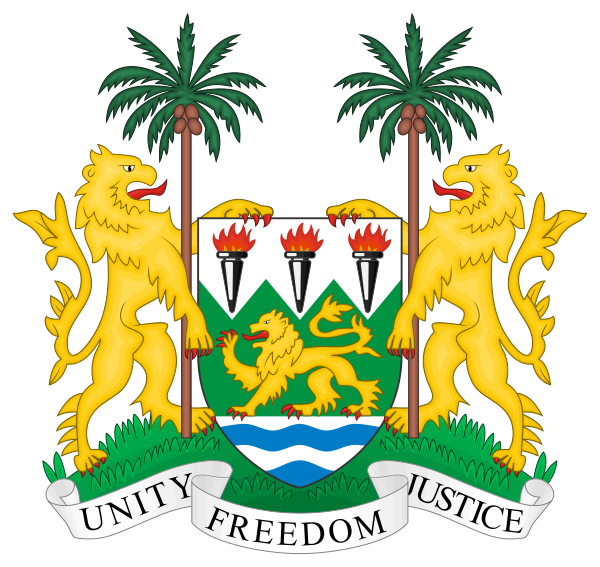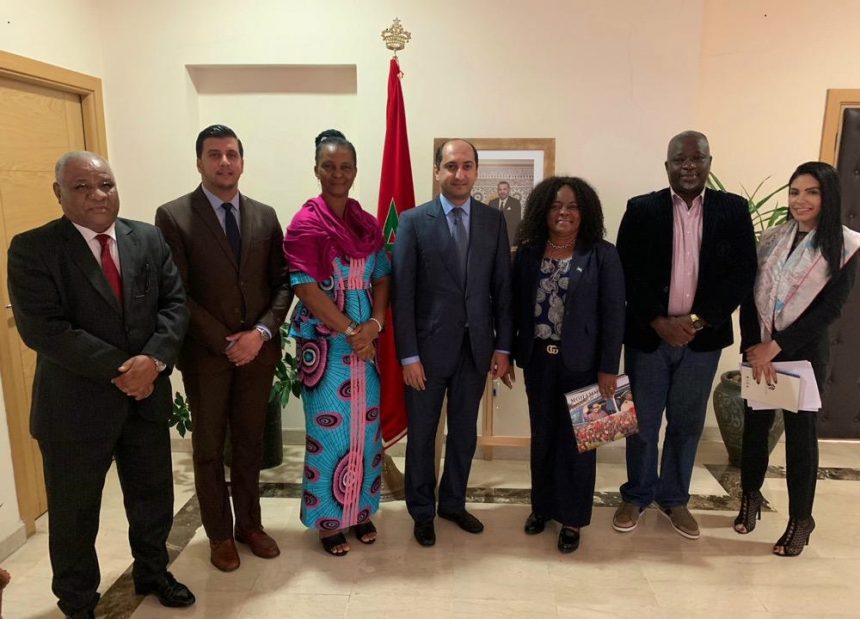A high-powered Moroccan delegation visited Sierra Leone from the 10th – 11th September 2019 to hold bilateral discussions with key Ministries, Departments and Agencies (MDA’s) in Sierra Leone. Among them was the Ministry of Fisheries and Marine Resources.
Consequent upon the visit, roadmaps of the main action points agreed upon were developed. The main objective of the delegation was to gather detailed information about potential areas of investment and cooperation during the sectorial meetings. As a result, an invitation was extended to the Ministry of Fisheries and Marine Resources for the Permanent Secretary and two senior fisheries technical staff to visit Morocco.
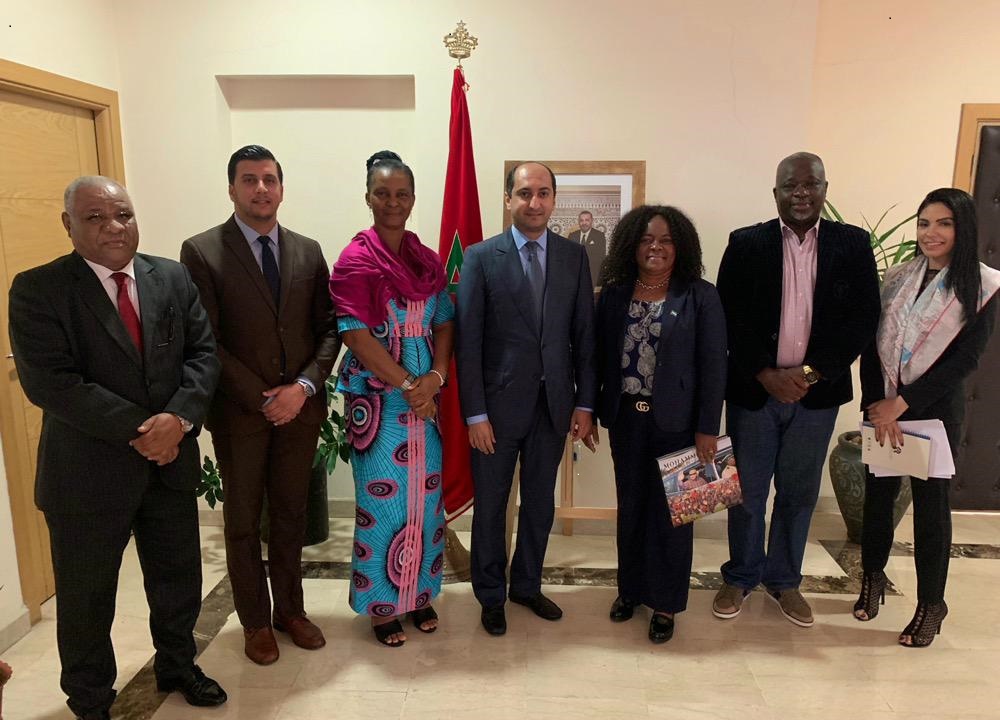
MFMR DELEGATION TOGETHER WITH THE DIRECTOR GENERAL AND TEAM OF THE MOROCCAN AGENCY FOR INTERNATIONAL DEVELOPMENT
The team comprised the Permanent Secretary, Elizabeth Ellie, Head of Marine Artisanal, Victor H. Kargbo and Head of Fish Processing and Quality Control Unit, Madam Abibatu Conteh. The delegation departed Sierra Leone on the 26th October 2019 and returned on the 5th November 2019. On arrival at Casablanca Airport, the team was taken to Rabat and later flown to Dakhla; an improved fishing settlement.
In Dahkla, the team was received by the Director of Fisheries who led us on a conducted tour of the Moroccan Chamber of Fisheries. The Director expressed their desire to have bilateral/business arrangements with relevant private sectors in Sierra Leone. The Chamber of Fisheries is a well-developed organization which members are elected by fisher folks. They have a representation in Parliament that advocate for the rights and living conditions/ welfare of fishermen or those involved in the fishing industry.
The team also visited the following areas: Azura Aquaculture Hatchery establishment that operate according to European Union (EU) standards. This was established in 2014. They specialized in clam production in enclosed, controlled environment before releasing them to the estuary. The whole cycle to harvesting takes about two years. It’s the first clam laboratory in the European Union and the first in Africa.
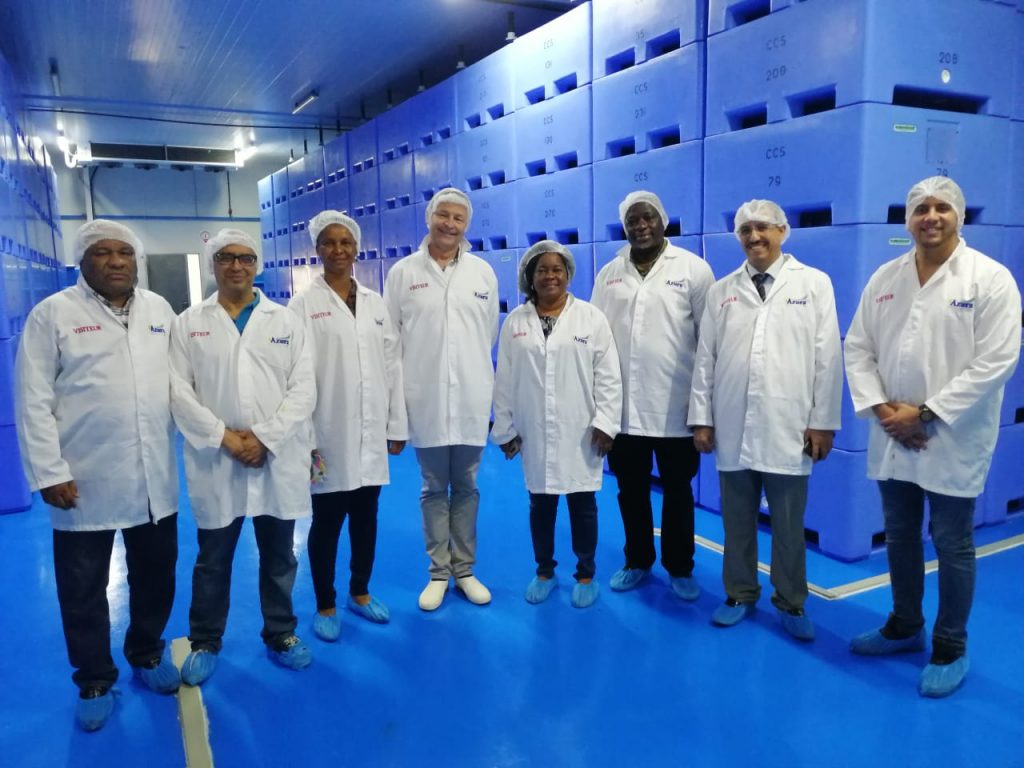
AT THE AZURA CLAMS AQUACULTURE CENTER
We also visited the KING PELAGIC Industrial unit in Dakhla. They are specialized in harvesting, canning and packaging of Sardinella species. The factory produces canned sardines of different flavours, frozen sardines, fish powder and fish meal from the waste (fish head, tail and scales). This unit directly employs about 1,600 people excluding casual workers.
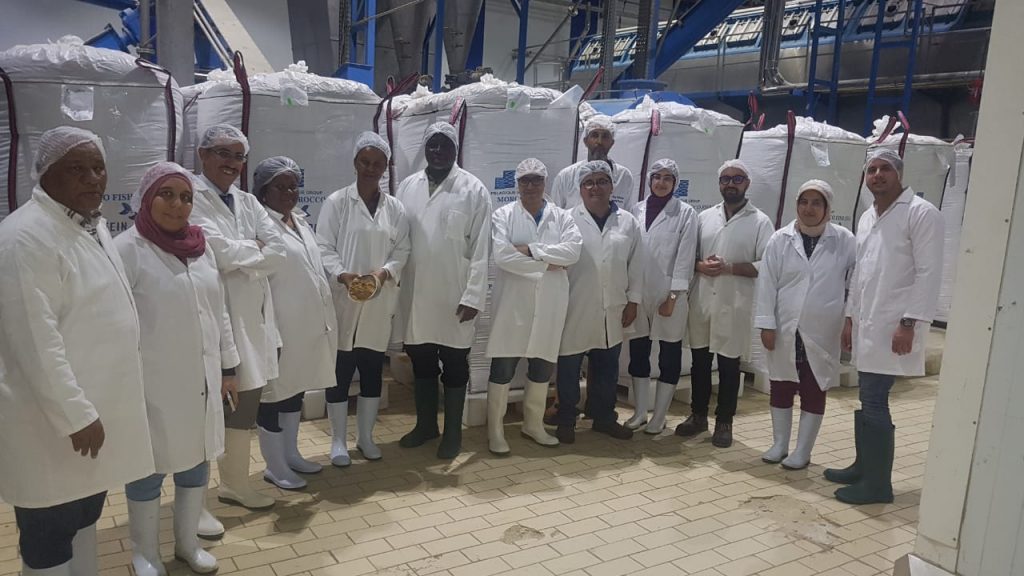
KING PELAGIC PROCESSESING AND PACKAGING CENTER IN DAKHLA
The team also visited the Higher Institute of Maritime Fisheries (ISPM). This institutes offers certificate courses for basic seamanship, firefighting, net making, engineering, etc. It is a mandatory course for all potential fishermen. A new lab for aquaculture is under construction which will be fully operational by next academic year.
At Agadir the team visited the Regional Center of National Institute for Halieutic Research Institute (INRH). The institute has three (3) regional, and six (6) specialized centers that cater for short, medium- and long-term training of personnel involved in the fishing industry. Students are trained on research work in Aquaculture, microbiological and chemical laboratory analysis. The institute is EU accredited.
The Team also visited the New Generation Fish Market and Port at Agadir. These facilities are established across the coast of Morocco and are specific to fish handling and operate on three days per week (Mondays, Wednesdays and Fridays). The essence of this is to monitor the catch to enhance traceability. The fish is sold by auction with specific details and documentation. It is obligatory for all fishing vessels to land their whole catch and sell in the auction market. The markets are EU accredited.
In all the areas we visited we observed a uniform and inflexible monitoring system in place. Further to this there is an equipped landing point where chips are installed in all the vessels operating in Moroccan waters. Additionally, a color system is introduced where each region has its own designated color. The installed chips are encrypted with software that gives detailed information of the owners of the vessel i.e., name of boat owner, boat name, fishing area, engine horsepower etc., etc.
At the Higher Institute of Maritime Studies at Agadir, various courses are offered as hands-on Training in Navigation, Electrical and Mechanical Engineering, and Fish Processing. The institute can also offer short term tailor-made courses that Sierra Leone may benefit from.
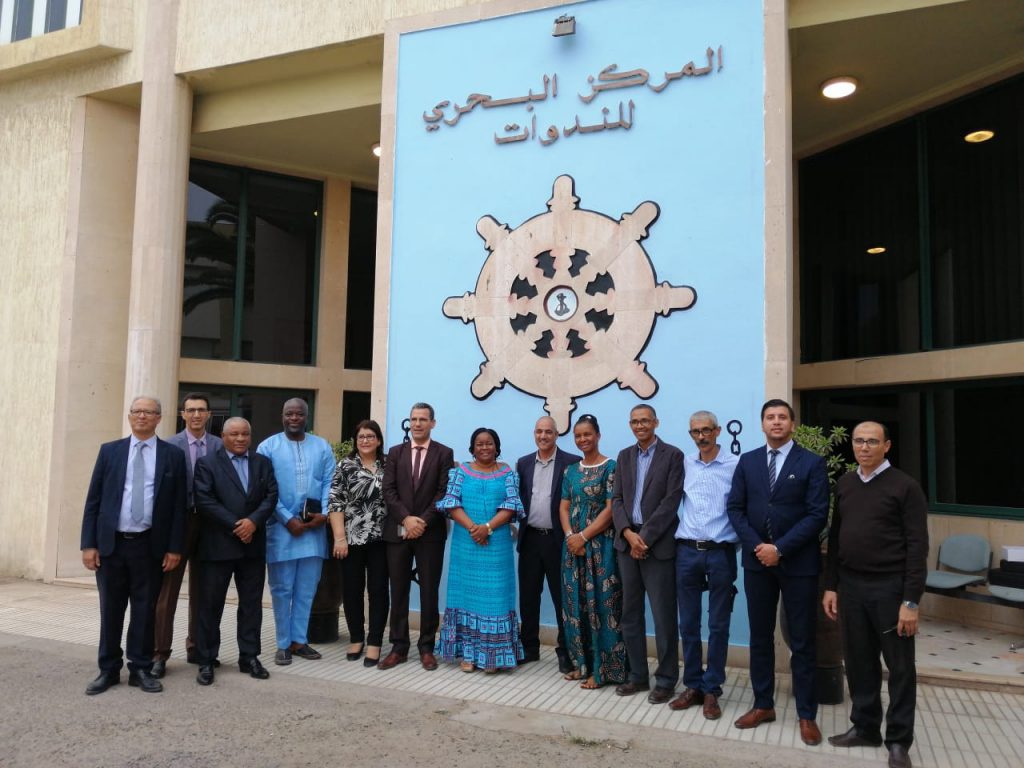
AT THE HIGHER INSTITUTE OF MARITIME STUDIES IN AGADIR
Required areas of cooperation and investment in the fisheries sector with Republic of Sierra Leone and the Kingdom of Morocco
At the end of the tour the delegations, the visitors held in-house deliberations in which the team decided to submit the following recommendations for consideration:
An immediate Moroccan high-level delegation visits to Sierra Leone to identify areas of potential investment and bi-lateral cooperation in the fisheries sector. And a follow-up visits by Sierra Leonean delegation comprising the Minister, representatives from the industrial and artisanal fishery sector in order to concretize plans with specific timelines.
To assist the Government of Sierra Leone in offering tailored made/refresher courses/trainings (short, medium and long term) of our personnel and artisanal fisherfolks to improve on their capacity to meet emerging issues in the fisheries sector.
Software development and registration of all fishing fleet (artisanal and industrial) is to enhance traceability.
Establishment of cold chain (fish market, cold rooms and cold trucks) facilities at district headquarter towns.
Construction of improved and equipped artisanal fish landing sites for our local fishermen.
Upgrading of the country’s fisheries and marine training school, this will include but not limited to equipment, research and assignment of personnel.
Establishment of fish processing (canning) facilities, especially sardines and tuna to create job opportunities to women and youth. Establishment of improved aquaculture and mariculture farms on fish species that can attract potential markets.
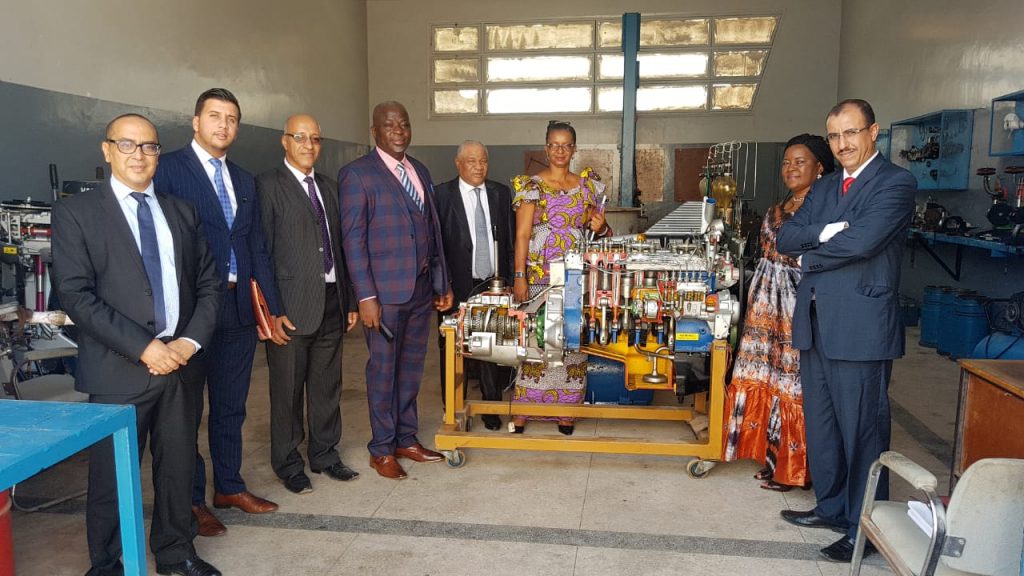
THE TRAINING INSTITUTE IN DAKHLA
3.0 After consultations with the authorities back home, the Team submitted the above points to the Director General of the Moroccan Agency for International Cooperation for due consideration. In his statement he was satisfied with the reports he got from the field about the team and he emphasized that Morocco is ready to invest in Sierra Leone and Africa as that is the desire of their King. He promised to have a meeting with his staff and industry concerning the request, but he advised the following;
- Ministry of Fisheries and Marine Resources (MFMR) Sierra Leone to prioritize the required areas for cooperation listed in pg. 4 & 5.
- Develop a bi-lateral development framework for both countries which should include key areas of intervention.
- The Team was also advised to participate fully in COMHAFAT/ATLAFCO as there are immense opportunities the organization can offer that will take care of some of our needs.
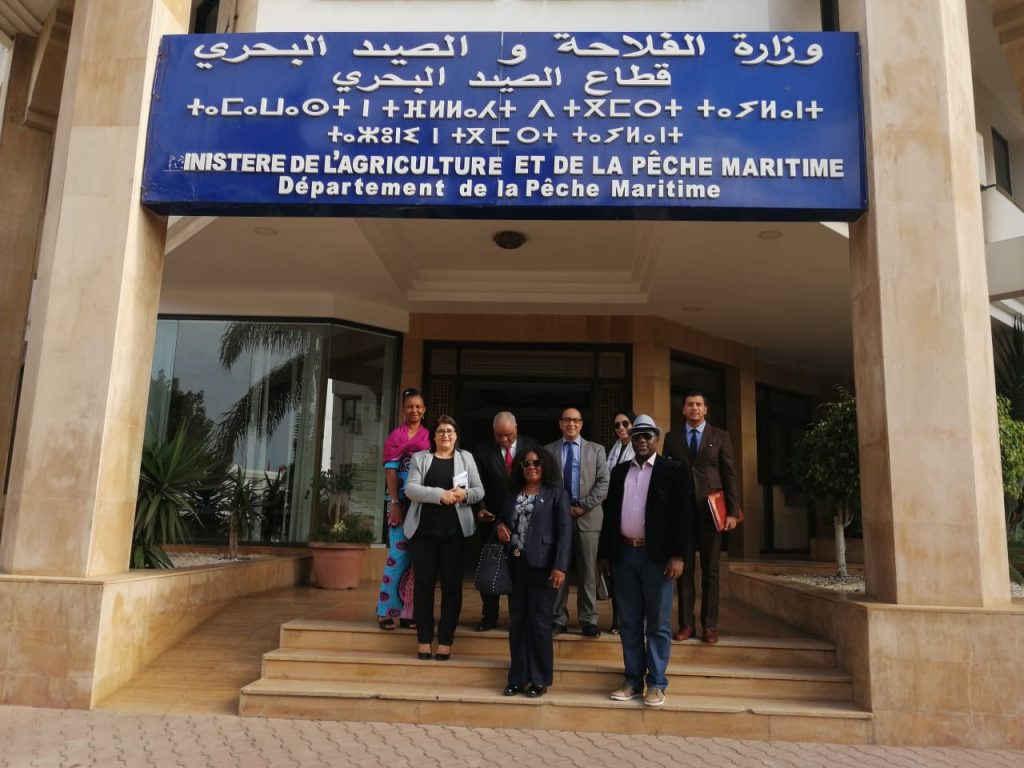
FAREWELL VISIT TO THE DEPARTMENT OF MARINE FISHERIES IN RABAT
